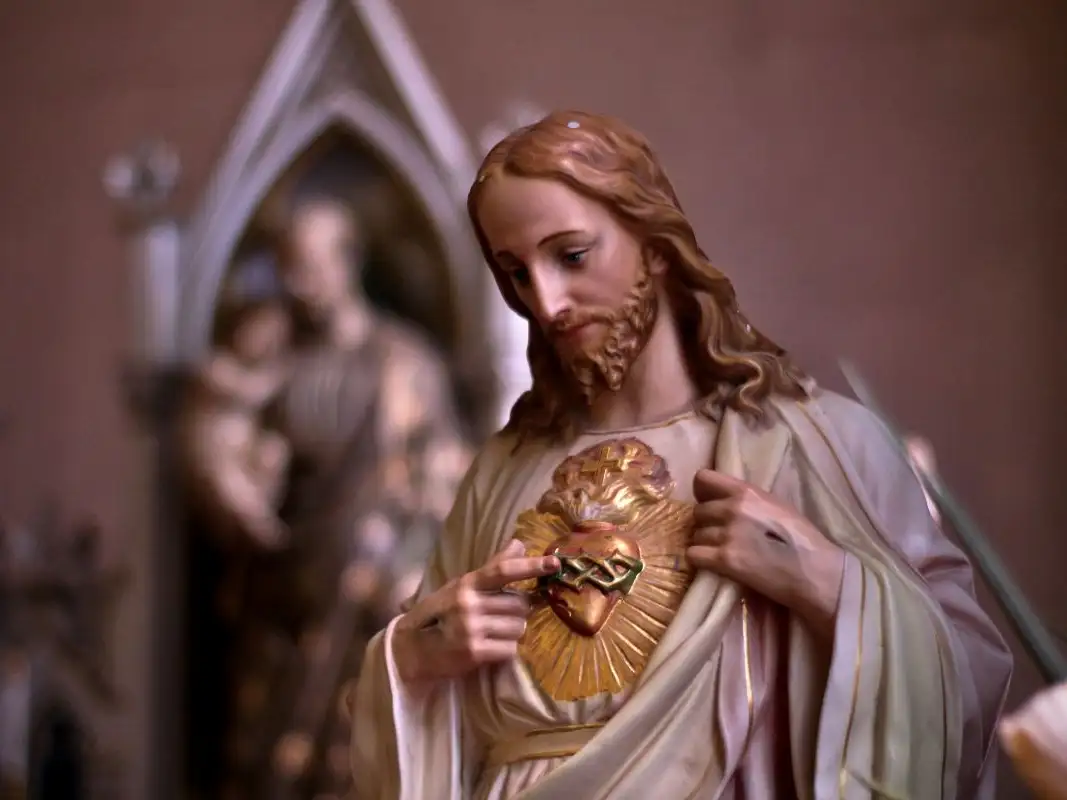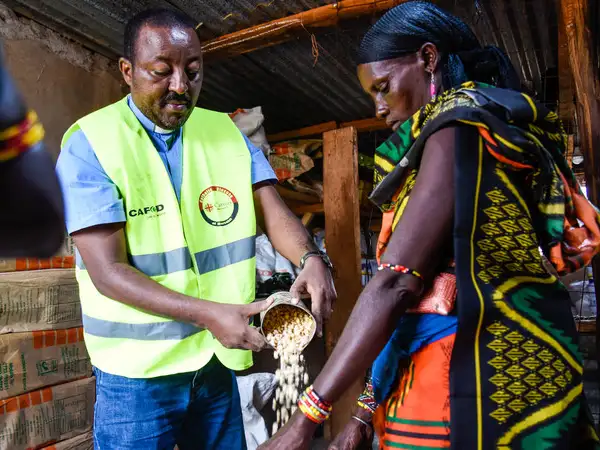Pray for the gift of peace for all those facing conflict.

On 24 October 2024 the Vatican released the latest encyclical, Dilexit Nos, on the human and divine love of the heart of Jesus Christ.
This Q&A explains some of the context and key messages of the document.
1. What is an encyclical?
An encyclical is a letter circulated by the Pope to all Catholic Christians.
Papal encyclicals provide analysis, in the light of the Gospel and of the Tradition of the Church, on relevant issues for the faithful. Previous popes have issued encyclicals on a variety of topics, from the study of Scripture (Leo XIII, 1893) to human development driven by love and truth (Benedict XVI, 2009).
2. Has Pope Francis written any other encyclicals?
Pope Francis has written three previous encyclicals. The first in 2013 was Lumen Fidei, which was written with his predecessor Pope Benedict XVI, on the need for faith. In 2015 Laudato Si’ called us to care for our common home. Then in 2020 FratellI Tutti emphasised the importance of breaking down barriers through encounter and solidarity.
3. What does Dilexit Nos mean?
The words “Dilexit Nos” are the first words of the encyclical and mean “He loved us.” They are a reference to Romans 8:37 in which Saint Paul says Christ loved us, making clear that nothing can ever “separate us” from that love (Rom 8:39). The full title of the encyclical is “Dilexit Nos - Encyclical Letter on the Human and Divine Love of the Heart of Jesus Christ."
4. Why has it been released at this time?
The document is part of ongoing celebrations marking the 350th anniversary of the first apparition of the Sacred Heart of Jesus to St. Margaret Mary Alacoque. The celebrations began on 27 December 2023, the anniversary, and are scheduled to end on the feast of the Sacred Heart, 27 June 2025.
Pope Francis believes that devotion to the Sacred Heart has the power to “illuminate the path of ecclesial renewal, but also to say something significant to a world that seems to have lost its heart.”
5. What is devotion to the Sacred Heart?
The Sacred Heart represents the love of Jesus as both fully human and fully divine. Although it has Biblical and early Christian roots, it became a widespread and popular devotion after 1673, due to the visions of St. Margaret Mary Alacoque. Christ appeared to the French nun four times, showing her his heart and affirming his love for all people.
The feast of the Sacred Heart was then instituted in 1856 by Pope Pius IX.
6. What are the key messages in this encyclical?
In this encyclical, Pope Francis is reminding us of how devotion to the Sacred Heart is a profound expression of faith; and an encounter with the unending love of God.
Pope Francis has frequently talked about the importance of encounter. In Dilexit Nos, he explains how our lifestyle today, with its frenetic pace and its emphasis on consumerism means that we are not paying enough attention to the heart. He returns to his theme of the dangers of individualism, telling us that this stops us from having a true encounter with our neighbour. This leads to the realisation that an authentic personal relationship to Christ, strengthened by devotion to the Sacred Heart cannot be separated from loving our neighbour. As Pope Benedict XVI says, 'love of neighbour is a path that leads to the encounter with God, and... closing our eyes to our neighbour also blinds us to God.' (Deus Caritas Est, 16)
Pope Francis particularly mentions the need for us to work for unity and peace in our world - a unity and peace that can only be brought about by love. He condemns the complicity, tolerance or indifference of other countries during the outbreak of new wars and speaks powerfully of the effect of conflict on the human person, evoking the image of elderly women who have lost their homes and are forced to mourn for their children and grandchildren.
Pope Francis also reiterates his call for us to care for our common home, saying: “For it is by drinking of [Christ’s] love that we become capable of forging bonds of fraternity, of recognizing the dignity of each human being and, of working together to care for our common home.” (#217)
We are reminded that God’s love for us is never-ending, and that filled with this love, we are also called to share it with others, when he says:
“We need once more to take up the word of God and to realise, in doing so, that our best response to the love of Christ’s heart is to love our brothers and sisters.” (#167)
7. What does it mean for the Catholic community?
Pope Francis’ new letter speaks to our hearts, reminding us that it is in Christ’s heart that "we truly come at last to know ourselves and we learn to love” (#30). As we approach the 2025 Jubilee Year, we can find renewed hope that “amid the devastation wrought by evil, the heart of Christ desires that we cooperate with him in restoring goodness and beauty to our world.”(#182)
The pope previously expressed his hope that the document will “illuminate the path of ecclesial renewal” and speaks here of the Church needing the “gratuitous love of God that liberates, enlivens, brings joy to the heart and builds communities” (#219).
In his response to the encyclical, Bishop Mark Davies has seen it as speaking to the synodal process, stating that “At a moment when the Church seeks ways to grow in communion, participation and mission, he indicates in these pages that an authentic path of renewal must pass through the Heart of Jesus.”
In the light of this encyclical’s invitation to respond to the love of Christ’s heart by loving our brothers and sisters, we can make manifest the love of Jesus in the world.
8. How can we respond to this encyclical?
Find out more about how to be a pilgrim of hope with us in the Church's holy year.
You can make a difference to people living in poverty by donating to CAFOD.
Fundraising for CAFOD means you can change the lives of women, men and children around the world. Find out how to get involved!
Find out how you can campaign with CAFOD and call for action to care for our common home and our global family.
Get involved as a CAFOD volunteer and inspire others to help to make the world a fairer place.







